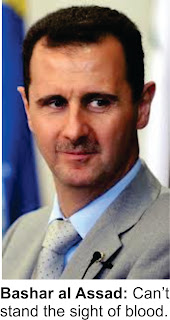I could have gone with the press contingent in Key’s plane, but I found out it was a DC1 with a dodgy fuel pump. So I decided to fly with the national carrier of the country that breeds the world’s greatest yachtsmen and booked on Qantas It was a wise move. We had a stop-off at Dubai and I noticed Key’s propeller driven aircraft with Air-force One painted over the old TEAL markings sitting on the steaming tarmac with some confused mechanics working on one of the ancient piston engines. I wanted to thumb my nose at his entourage but they were sweating profusely and I didn’t have the heart to tell them what a difference pressurisation can make.
Getting through customs in Britain is not easy these days. They were furious about the butcher’s knives I had in my overnighter. I had brought these to give away as gifts but they were promptly confiscated. Fortunately I had also packed some genuine Taiwanese plastic tikis which proved to be hugely popular.
One official took a keen interest in the size of my nose and wanted to know if I a Jew or an Arab? I told him Rick was short for Ikey and I was congenially waved on through.
Key’s plane was still circling around Heathrow looking for a gap in the fog so I decided to get up to Balmoral under my own steam. The taxi driver, a Pakistani who spoke better English than I do, asked me about New Zealand. He said he had seen the Hobbit and was surprised how tall I was. He told me he and his family were thinking of emigrating to Godzone, but he’d read where some chap named Shearer wasn’t too keen on letting Asians own a house there. I told him Mr Shearer’s view of the world didn’t count any more and his successor, a man with the unlikely name of Cunliffe, was yet to announce his housing policy so he ought to make the move promptly before the new man lowered the boom.
I also told him about a man named Mallard who owned a house in Lower Hutt who might be keen to sell at a bargain price.
Getting into Balmoral was a breeze. I bumped into Prince Charles talking to a bed of camellias in the garden and in no time we were joined by Prince Phillip. They were both welcoming and Prince Phillip wanted to know how I’d got past the Beefeater at the gate. I told him how we’d had a friendly chat about eating beef as opposed to cutting it up for sale and he let me slip by.
Charles and Philip allowed that they were both looking forward to meeting Stephanie Key as they’d seen the racy photos of her in the Daily Mirror and they thought she’d make a great page three girl.
Philip, who insisted I call him Phil, invited me to come inside and “meet the wife.”
The Queen was most gracious.
I told her how I’d enjoyed her performance with Rowan Atkinson in Johnny English Reborn, but she told me that both her character and the Chinese look-alike were, well, look-alikes. I did my best to hide my disappointment at this shattering disclosure.
I asked did she enjoy being called a great-granny and she told me she was getting used to it. Small talk was not easy, but the two corgis, Holly and Willow, were making nuisances of themselves so I turned the conversation around to dogs. I said we owned a couple of canines and she wanted to know their names. I told her one of them thinks his name is “Down Boy” and I said the other one’s got such a pedigree that if she could talk she wouldn’t speak to either of us.
I was relieved when John and Bronagh turned up with Stephanie and Max and I was able to leave them to make conversation with the old lady.
I spent the next few days playing polo and shooting grouse.
Soon I was winging my way home and I found myself sitting next to a flaming redhead who I’ll swear was Stephanie Key. She had a packet of McDonald's fries nestled on her lap.
It’s experiences like this you normally only dream about.













